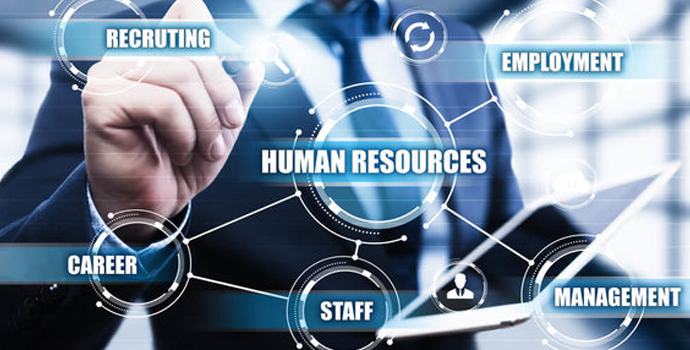Unlocking Business Potential with Human Resources
Human Resources (HR) is the backbone of any thriving organization. It ensures that the company’s most valuable asset—its employees—is trained in a way that is, supportive of, and aligned with business objectives. From employee support systems to resource management, HR is essential to creating a work environment that fosters growth, productivity and innovation.
Why Human Resources Is Vital for Business Success
Whether you are managing a small team or leading a multinational company, an effective HR function is essential. Here’s why:
Attracting top talent: HR strategies are designed to hire the right people for the right roles.
Increase employee engagement: Performance management systems keep employees motivated and aligned with organizational objectives.
Ensure Compliance: HR ensures that your business is in compliance with employment laws and regulations.
Improved productivity: Well-designed HR systems eliminate inefficiencies and create a productive work environment.
For tailored HR solutions, visit our HR Services page.

Key Functions of Human Resources
HR encompasses a wide range of responsibilities that contribute to organizational success. Here are some of its key functions:
Employee Assistance Programs (EAPs)
Employee well-being is a priority for every forward-thinking business. EAPs offer:
- Counseling services for personal and work-related issues
- Stress management workshops
- Support during crises or transitions
Implementing an effective EAP can significantly improve employee morale and productivity.
Recruitment and Talent Acquisition
Finding the right talent is critical to business success. HR teams or consultants manage:
- Job postings and candidate screening
- Structured interviews and onboarding processes
- Retention strategies to reduce turnover
For expert guidance, explore our Recruitment Solutions.
HR Systems and Technology
Modern HR systems streamline processes and provide valuable insights. Key features include:
Automated rewards and attendance tracking
performance management tools
Personnel data analysis for strategic decision making
Investing in a robust HR system saves time and increases the accuracy of employee management.
Role of the HR consultant
HR consultants provide key support to businesses looking to optimize their HR practices. Here’s what they bring to the table:
Bespoke strategies: Solutions tailored to your business needs
Regulatory compliance skills: Keep up with ever-changing regulations
Conflict resolution: Mediation and intervention for workplace conflict
If you need expert HR consultancy, visit our HR Consultant page.
Human Resource Management: A Strategic Approach
Human resource management (HRM) goes beyond administrative tasks. It involves strategic planning to achieve organizational goals. Key aspects of HRM include:
Performance Management
Regular feedback and evaluations are vital for:
- Identifying strengths and areas for improvement
- Setting achievable goals for employees
- Encouraging professional development

Resource Management
Efficient resource allocation ensures that your employees are utilized effectively. This includes:
Planning employees to meet business requirements
Addressing skills gaps through training programs
Optimizing team structure for better collaboration
How HR Systems for Industry Change
Technology plays an important role in modern human resource management. Advanced HR systems deliver:
Ubiquitous data: Employee information is easily accessible
Advanced communication: Tools for internal messaging and collaboration
Compliance monitoring: Automated reminders of regulatory requirements
Implementing an HR system tailored to your needs can transform your operations. Learn more about our HR Systems solutions.
Employee Assistance Programs: A Win-Win Solution
EAPs benefit both employees and employers. Here’s how:
- For Employees: Access to mental health resources, financial counseling, and legal advice.
- For Employers: Reduced absenteeism, increased productivity, and a positive work environment.
Explore the benefits of implementing an EAP at your organization.
The Role of the Human Resources Officer
An HR officer is a cornerstone of effective HR management. Their responsibilities include:
- Overseeing recruitment and onboarding
- Managing employee records and benefits
- Ensuring workplace compliance and safety
By delegating these tasks to a skilled HR officer, businesses can focus on strategic growth.
How HR Services Enhance Business Growth
HR services are not just operational necessities; they’re strategic enablers. Here’s how they drive growth:
Employee Engagement
Engaged employees are more productive and innovative. HR services create programs that:
- Recognize and reward achievements
- Foster open communication
- Support career development
Compliance and Risk Management
Avoid costly legal issues by ensuring compliance with employment laws. HR services help:
- Draft employee contracts
- Develop workplace policies
- Conduct regular compliance audits
Visit our HR Services page to learn how we can support your business growth.
Choosing the Right HR Partner
Selecting the right HR services provider is crucial. Consider the following:
- Experience: Proven expertise in your industry
- Comprehensive Services: From recruitment to compliance, choose a partner that meets all your needs
- Client Testimonials: Positive feedback from other businesses
EqualS HR offers end-to-end HR solutions tailored to your requirements. Contact us today to discuss your needs.
External Resources for HR Insights
For additional guidance and resources, explore:
0 Comments